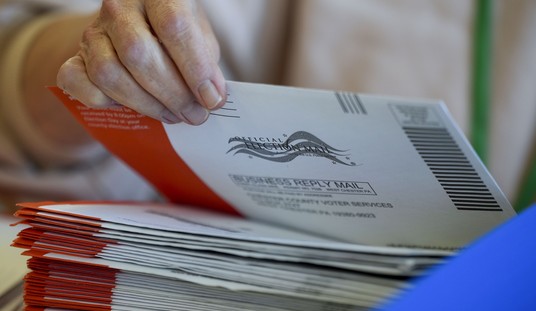It’s a lie, a gross distortion or a paranoid delusion. Take your pick.
In a Daily Beast article, blogger Matthew Yglesias does his best to shoehorn a few bits of truth into the Obama gang’s favorite narrative: “It’s Bush’s fault!”
In making his argument that the blowout and spill resulted from lax enforcement by the Minerals Management Service, Yglesias focuses on a program known as Royalty-in-Kind.
The saga starts back in 1997 when, under Bill Clinton, the government cared about doing things properly. At this point in time, MMS responded to evidence that energy interests were underpaying royalties to the federal government by proposing a more stringent rule to collect Royalties in Value (RIV), i.e., money from drillers and miners. Industry didn’t like that and countered instead with a proposal to pay Royalties in Kind (RIK), i.e., oil or gas that they thought would be cheaper.
The truth is, Royalty-in-Kind is eminently fair, and the cleanest royalty payment method, both for the producer and the royalty owner. It only makes sense for a royalty owner that is big enough and sophisticated enough to market his own production. A large royalty owner like the Federal government ($12 billion or so a year) should wield considerable clout in the market.
With cash transactions, the royalty owner has to be concerned about whether they are paid the correct amount. The biggest issue is price: if a producer sells to an affiliated pipeline or refinery, has he received a true market price? All this takes an army of accountants, auditors and lawyers.
With RIK, the Feds took control of the product and either marketed it to refiners or pipelines, or stored the oil in the Strategic Petroleum Reserve.
Notice how Yglesias elides over the details in asserting that RIK was a built-in profit maker for oil companies:
But it was steadily expanded each and every year of the Bush administration because statutory requirements aside, RIK was great at achieving the president’s objective of letting oil companies make more money. By September 2009, a new team was in charge and Secretary of the Interior Ken Salazar announced the program would be terminated. [Emphasis mine.]
For clarity, an illustration: Jack takes six buckets of water from his well on Jill’s property. Per their agreement, Jack owes Jill one bucket in consideration. They can either debate the value of a bucket of water, or Jack can simply give Jill one of his six buckets. Jill is free to use the water or sell it. In what way, exactly, does such a transaction achieve Jill’s objective of letting Jack make more money when he sells his water?
As Yglesias points out, the GAO was critical of the RIK program, questioning whether it was successful at maximizing government revenue. It should have been fairly easy to measure if the production had merely been sold to the highest bidder. But it wasn’t. Some RIK was bid on the open market, but many barrels went to the SPR and some oil was allocated to smaller and less competitive refiners. So the RIK program evolved into missions other than maximizing revenue; with SPR oil and occasional withdrawals of same, a lot of the program’s financial performance would depend on how you accounted for it (LIFO? FIFO?).
Inexplicably, Yglesias leaves out the part of the story that’s usually proffered as evidence of MMS’s “inappropriately cozy” relationship with the industry it regulates. In 2008, a salacious scandal rocked the MMS RIK office in Denver.
In the Royalty in Kind division, “between 2002 and 2006, nearly one-third of the staff socialized with, and received a wide array of gifts and gratuities from, oil and gas companies,” with whom those workers were conducting business, one report said.
Gifts included ski and golf trips, tickets to sporting events, a jaunt to a party in New Orleans, dinners, drinks and a paintball outing.
Devaney said investigators found “a pervasive culture of exclusivity, exempt from the rules that govern all other employees of the federal government.”
The employees also used marijuana and cocaine with energy company workers, the report said.
RIK was not a regulatory function. It was in no way a reflection of MMS’s dealings with industry in its normal capacity as a regulator. The oil companies the RIK office dealt with inappropriately were customers, a vastly different relationship than that of regulated companies.
That the RIK office in Denver was out of control was a management failure. In hindsight, it was a mistake to expect a government office to try to act like the marketing department of an oil company.
Nice try, Matt. Cool narrative you’ve got there. Sucks that there’s not a scrap of truth in it.
Cross-posted at VladEnBlog.














Join the conversation as a VIP Member